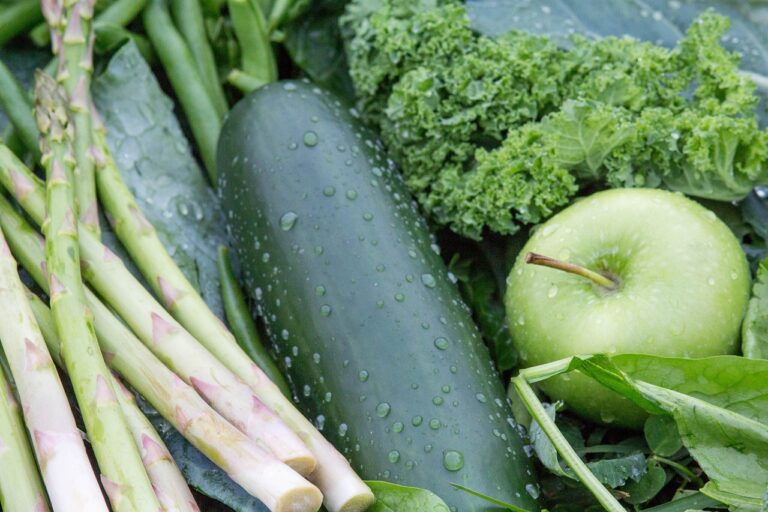Contents
ToggleIn recent years, there’s been a growing interest in understanding “How much meat should you eat” for optimal health. The question of “How much meat should you eat” isn’t just about dietary preferences but also involves considerations for long-term health, environmental sustainability, and ethical choices. As more research emerges, health experts and nutritionists provide updated guidelines to help individuals make informed decisions about their meat consumption. This comprehensive blog will delve into the health guidelines surrounding meat consumption, breaking down the recommendations into clear, actionable points.

How Much Meat Should You Eat
Understanding the Basics of Meat Consumption
Types of Meat: Different meats provide various nutrients. Red meat (beef, lamb, pork) is rich in iron and protein, while white meat (chicken, turkey) is often leaner and lower in saturated fat. Fish is another category, offering high omega-3 fatty acids beneficial for heart health.
Nutritional Value: Meat is a significant source of high-quality protein, vitamins (B12, B6, niacin), and minerals (iron, zinc). These nutrients are essential for muscle development, energy production, and overall health.
Serving Size: A typical serving of meat is about 3 ounces cooked (roughly the size of a deck of cards). Understanding portion sizes helps in controlling calorie intake and maintaining a balanced diet.
Health Guidelines for Meat Consumption
Dietary Recommendations: Most health organizations, such as the American Heart Association and the World Health Organization, suggest limiting red and processed meat due to their association with heart disease and certain cancers. They recommend a balanced diet that includes a variety of protein sources.
Red Meat Consumption: It is generally advised to limit red meat intake to no more than three servings per week. This equates to approximately 12-18 ounces per week. Reducing red meat consumption can lower the risk of colorectal cancer and cardiovascular diseases.
Processed Meat: Processed meats (like bacon, sausages, and deli meats) should be consumed sparingly. These products often contain high levels of sodium and preservatives, which can increase the risk of hypertension and other chronic conditions.
White Meat and Poultry: Lean meats such as chicken and turkey can be consumed more frequently. These meats are lower in saturated fats and calories, making them a healthier alternative to red meat. Aim for 2-3 servings per week.
Fish and Seafood: Incorporating fish into your diet at least twice a week is beneficial, especially fatty fish like salmon, mackerel, and sardines. These types of fish are rich in omega-3 fatty acids, which support heart health and cognitive function.
Balancing Meat with Other Protein Sources
Plant-Based Proteins: Beans, lentils, tofu, tempeh, nuts, and seeds are excellent sources of protein. Incorporating these into your diet can help reduce reliance on meat while still meeting nutritional needs.
Dairy and Eggs: These animal products are also rich in protein and can be part of a balanced diet. Opt for low-fat or fat-free dairy products to minimize saturated fat intake.
Variety and Moderation: Strive for a balanced diet that includes a mix of animal and plant-based proteins. This approach can provide a broader range of nutrients and minimize the risks associated with high meat consumption.
Potential Health Risks of Excessive Meat Consumption
Heart Disease: High consumption of red and processed meats is linked to an increased risk of cardiovascular diseases due to high levels of saturated fats and cholesterol.
Cancer Risk: Studies have shown that a high intake of red and processed meats can elevate the risk of colorectal cancer and other types of cancer.
Obesity: Excessive meat consumption, especially when combined with a sedentary lifestyle, can contribute to weight gain and obesity, leading to various health issues such as diabetes and metabolic syndrome.
Sustainable and Ethical Considerations
Environmental Impact: Meat production, particularly beef, has a significant environmental footprint, contributing to greenhouse gas emissions, deforestation, and water usage. Reducing meat consumption can help mitigate these impacts.
Ethical Concerns: Animal welfare is another consideration. Opting for meat from sources that practice humane treatment of animals or choosing plant-based alternatives can align with ethical values.
Practical Tips for Reducing Meat Consumption
Meatless Mondays: Start by dedicating one day a week to meatless meals. This simple change can significantly reduce your overall meat intake.
Portion Control: Be mindful of portion sizes. Even if you eat meat, keeping portions small can help manage overall consumption.
Substitute Ingredients: Use plant-based alternatives in your favorite recipes. For example, substitute beans for beef in chili or use tofu in stir-fries instead of chicken.
Explore New Recipes: Experiment with vegetarian and vegan recipes to diversify your diet and discover new, delicious ways to prepare meals without meat.
Gradual Changes: If reducing meat intake feels overwhelming, start with small changes and gradually increase plant-based meals in your diet.
Benefits of Reducing Meat Consumption
Improved Heart Health: Lowering meat intake, particularly red and processed meats, can reduce cholesterol levels and decrease the risk of heart disease.
Weight Management: A diet higher in plant-based foods and lower in meat can help with weight management and reduce obesity-related health issues.
Enhanced Digestion: Plant-based diets are typically higher in fiber, promoting better digestion and gut health.
Longevity: Studies suggest that diets low in red meat and high in plant-based foods are associated with increased longevity and a lower risk of chronic diseases.
Understanding “How much meat should you eat” involves considering various health, environmental, and ethical factors. By following health guidelines and being mindful of meat consumption, individuals can achieve a balanced diet that supports overall well-being. Reducing meat intake, especially red and processed meats, can lead to numerous health benefits, including improved heart health, better weight management, and enhanced longevity. Incorporating a variety of protein sources, particularly plant-based options, can contribute to a more sustainable and ethical food system. Making informed dietary choices is a step towards a healthier and more sustainable future for everyone.
Trendy Healthy Meat Recipes
Lemon Herb Grilled Chicken
This recipe combines the freshness of lemon and herbs with the lean protein of chicken, making it a perfect healthy meal option.
Ingredients:
- 4 boneless, skinless chicken breasts
- 1/4 cup olive oil
- Juice of 2 lemons
- 3 cloves garlic, minced
- 2 tbsp fresh parsley, chopped
- 1 tbsp fresh thyme, chopped
- Salt and pepper to taste
Instructions:
- In a bowl, whisk together olive oil, lemon juice, garlic, parsley, thyme, salt, and pepper.
- Place the chicken breasts in a resealable plastic bag and pour the marinade over them. Seal the bag and refrigerate for at least 30 minutes.
- Preheat the grill to medium-high heat. Remove the chicken from the marinade and grill for 6-8 minutes on each side, or until fully cooked.
- Serve with a side of grilled vegetables or a fresh salad.
Baked Salmon with Garlic and Dijon
Salmon is rich in omega-3 fatty acids, making it a heart-healthy choice. This baked salmon recipe is simple yet flavorful.
Ingredients:
- 4 salmon fillets
- 2 tbsp Dijon mustard
- 2 cloves garlic, minced
- 1 tbsp fresh dill, chopped
- 1 tbsp olive oil
- Salt and pepper to taste
- Lemon wedges for serving
Instructions:
- Preheat the oven to 400°F (200°C).
- In a small bowl, mix together Dijon mustard, garlic, dill, olive oil, salt, and pepper.
- Place the salmon fillets on a baking sheet lined with parchment paper. Spread the Dijon mixture evenly over the top of each fillet.
- Bake for 12-15 minutes, or until the salmon is cooked through and flakes easily with a fork.
- Serve with lemon wedges and a side of steamed vegetables or quinoa.
Turkey and Quinoa Stuffed Bell Peppers
These stuffed bell peppers are a nutritious and satisfying meal, packed with lean ground turkey and protein-rich quinoa.
Ingredients:
- 4 large bell peppers, tops cut off and seeds removed
- 1 lb ground turkey
- 1 cup cooked quinoa
- 1 can (14.5 oz) diced tomatoes, drained
- 1 small onion, diced
- 2 cloves garlic, minced
- 1 tsp cumin
- 1 tsp paprika
- Salt and pepper to taste
- 1/2 cup shredded cheese (optional)
Instructions:
- Preheat the oven to 375°F (190°C).
- In a large skillet, cook the ground turkey over medium heat until browned. Add the onion and garlic, and cook until softened.
- Stir in the cooked quinoa, diced tomatoes, cumin, paprika, salt, and pepper. Cook for a few more minutes to combine the flavors.
- Stuff each bell pepper with the turkey and quinoa mixture. Place the stuffed peppers in a baking dish.
- If using cheese, sprinkle it on top of each stuffed pepper.
- Cover the dish with foil and bake for 30 minutes. Remove the foil and bake for an additional 10-15 minutes, or until the peppers are tender.
- Serve hot, garnished with fresh herbs if desired.
People Also Ask
1. How much meat should you eat per week for optimal health?
For optimal health, it’s recommended to limit red meat consumption to no more than three servings per week, totaling approximately 12-18 ounces. Lean meats like poultry can be consumed more frequently, around 2-3 servings per week. Additionally, incorporating fish into your diet at least twice a week is beneficial due to their high omega-3 fatty acid content. Balancing meat with plant-based proteins and other nutrient-rich foods is essential for a healthy diet.
2. What are the health risks associated with eating too much meat?
Excessive meat consumption, particularly red and processed meats, can increase the risk of several health issues. These include heart disease, due to high levels of saturated fats and cholesterol; cancer, particularly colorectal cancer; and obesity, which can lead to diabetes and metabolic syndrome. Consuming high quantities of meat can also contribute to digestive issues and increase the risk of developing chronic conditions.
3. How can I reduce my meat consumption without feeling deprived?
Reducing meat consumption without feeling deprived can be achieved through several strategies:
- Meatless Mondays: Dedicate one day a week to meatless meals.
- Portion Control: Be mindful of portion sizes even when you do eat meat.
- Substitute Ingredients: Use plant-based alternatives like beans, tofu, and lentils in your favorite recipes.
- Explore New Recipes: Experiment with vegetarian and vegan recipes to diversify your diet.
- Gradual Changes: Start with small changes and gradually increase the number of plant-based meals in your diet. This approach helps you adapt without feeling deprived of your favorite foods.





